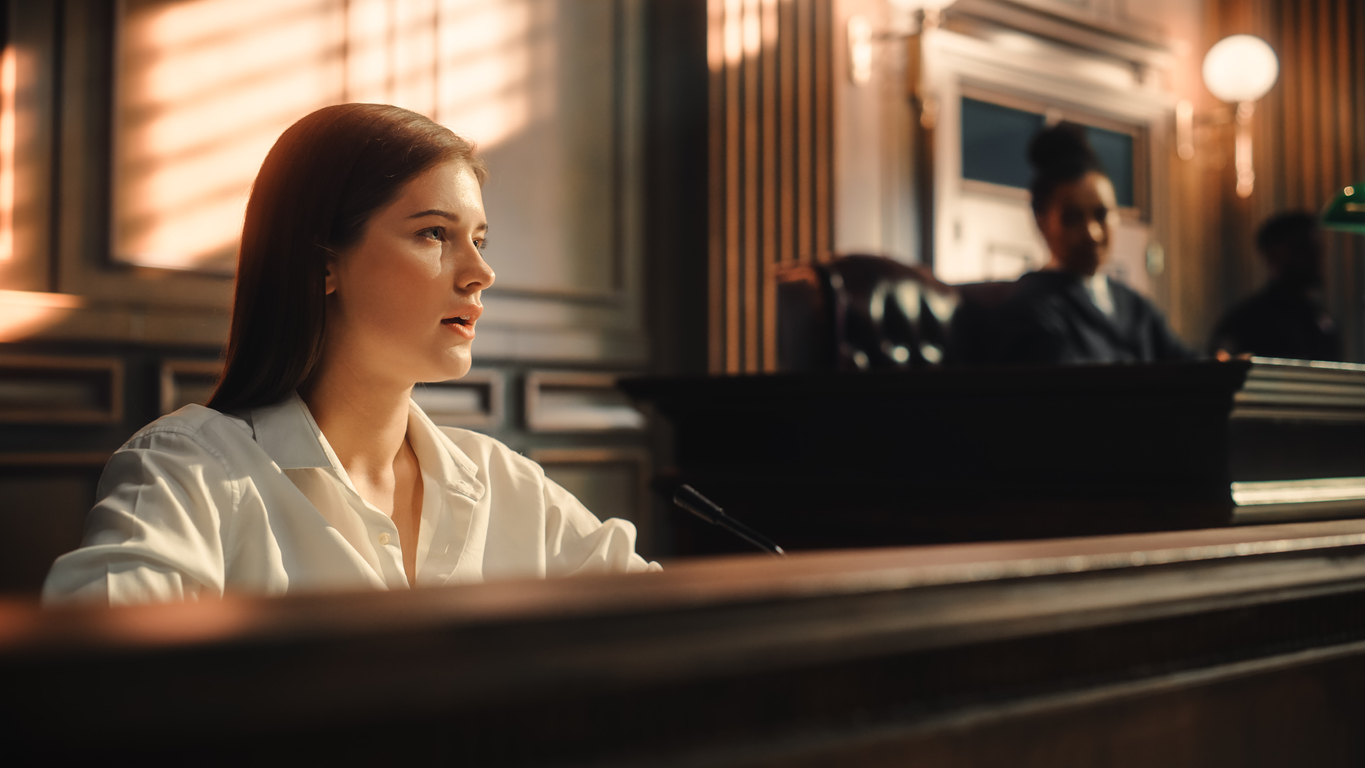Arons & Solomon Divorce Lawyers | August 25, 2022 | New Jersey Law

In New Jersey, spousal privilege is represented by a rule of evidence (New Jersey Rules of Evidence 509) and a statute (New Jersey Code 2A:84A-22). These laws prevent spouses or partners in a civil union from revealing confidential communications between them. References to marriage herein also apply to civil unions.
Spousal privilege applies to court proceedings. Nevertheless, there are many exceptions to spousal privilege. The purpose of the privilege is to preserve marital harmony, an important social objective.
How Testimony and Privileges Work
Most of the time, when a court subpoenas you to testify, you must:
- Show up for court;
- Take the witness stand;
- Answer questions from an attorney; and
- Tell “the truth, the whole truth, and nothing but the truth.”
You cannot refuse to answer the question unless a privilege applies. The Fifth Amendment privilege against compelled self-incrimination, attorney-client privilege, and spousal privilege are three examples of privileges that excuse you from testifying about some issues. You can also be excused from answering a question when your lawyer successfully objects to the nature of the question.
If no privilege applies, you must answer the question. If you refuse, the judge can hold you in contempt of court. In serious cases, the judge might even jail you. It is this compulsion that renders spousal privilege so important to the maintenance of marital harmony. Without it, spouses would have to constantly monitor their speech in conversation with each other. Spousal privilege encourages open and honest communication between spouses.
Who Can Invoke the Spousal Privilege?
In one sense, only the spouse called to testify can invoke spousal privilege. If the spouse called to testify chooses to go ahead with their testimony, the other spouse cannot invoke the privilege to prevent them from doing so. However, assuming both spouses want to keep the content at-issue private, either can invoke spousal privilege so long as an exception does not apply.
Exceptions to Spousal Privilege
Spousal privilege does not apply if:
- The communications occurred before the couple was married or after they divorced. However, even divorce will not prevent either spouse from invoking the privilege to prevent disclosure of communications that took place during the marriage.
- The parties were separated, although still legally married, at the time of the communication. The purpose of the privilege is to preserve marital harmony. This purpose does not apply if the harmony between the spouses has already been breached, as in a marital separation.
- Both spouses consent to the disclosure. The purpose of the privilege is to preserve marital harmony, and there is no breach of harmony if both spouses consent.
- The communication is relevant to a legal action where the spouses are on opposing sides (a divorce or a child custody proceeding, for example). Again, there is no need to apply the privilege when marital harmony has already been breached.
- Either spouse consents to the disclosure of the communication in a criminal prosecution.
- In a criminal action, if the spouses were partners in an ongoing or planned crime or fraud. In this case, neither spouse has to consent.
- One spouse is the defendant in criminal prosecution, and the defendant spouse consents to the disclosure. Even without consent, the other spouse can testify to the extent necessary to prove the existence of the marriage.
- A defendant spouse is charged with a criminal offense against the other spouse or the child of either spouse.
- The spouses acted as partners in an actual or planned crime or fraud at the time of the communication.
In a nutshell, spousal privilege does not apply to avoid the legal consequences of criminal conduct by either spouse or if the spouses are on opposite sides of a legal proceeding.
Talk To a Lawyer If You Have Concerns About Spousal Privilege
The preceding discussion does not tell you all you need to know about spousal privilege under any possible circumstances. If you still have questions, consult a lawyer, particularly if you anticipate litigation involving you and your spouse.
Contact the Bergen County Family and Divorce Law Firm of Arons & Solomon Divorce Lawyers for more help
Contact the experienced family attorneys at Arons & Solomon Divorce Lawyers today for legal assistance. Visit our law office in Bergen County or give us a call at (201) 487-1199 to schedule a free consultation with our team.
Bergen County Law Office
1 University Plaza Dr #400, Hackensack, NJ 07601, United States
